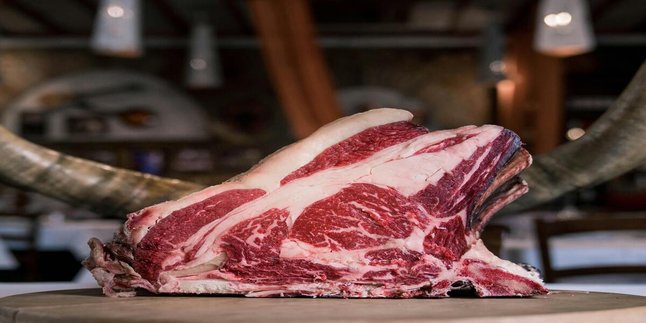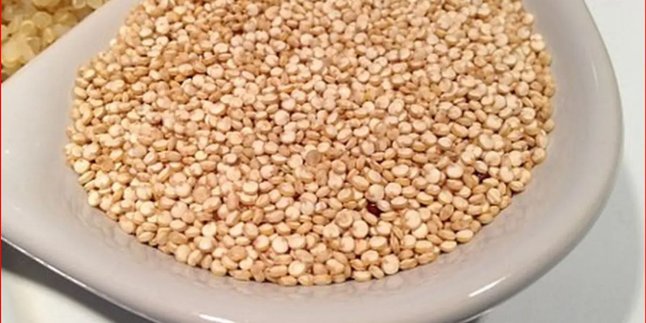Kapanlagi.com - Who would have thought, gedi leaves (Abelmoschus manihot L. Medik) are not just ordinary vegetables? This herbal plant, which has long been part of traditional medicine, holds a wealth of benefits thanks to its abundant nutritional content, especially antioxidant and anti-inflammatory compounds.
Gedi leaves often appear in various delicious dishes, but their wonders do not stop there! Research shows that these leaves have extraordinary potential in lowering bad cholesterol (LDL) levels and increasing good cholesterol (HDL) levels. This is due to the presence of flavonoids and polysaccharides that actively help maintain cholesterol balance in the blood.
Not only that, the antioxidants found in gedi leaves also serve as cell protectors from damage caused by free radicals, which often trigger various chronic diseases, including cardiovascular disorders.
However, to experience the benefits optimally, the processing method of gedi leaves is very important. Boiling gedi leaves with the right technique can preserve their compound content, ensuring their health benefits remain intact.
Want to know more about the incredible benefits of gedi leaves and the steps to boil them correctly? Check out the complete guide summarized by Kapanlagi.com, Thursday (30/1).
1. Content and Benefits of Gedi Leaves for Health
Gedi leaves, the charming green, actually hold a wealth of extraordinary benefits for our health! Known to be rich in active compounds, this leaf contains flavonoids that act as powerful antioxidants, protecting the body's cells from damage and reducing the risk of heart disease.
Not only that, the polysaccharides contained within also help control blood sugar levels and boost the immune system. With its ability to improve blood circulation and prevent excessive clotting, gedi leaves have the potential to be a natural blood thinner.
Additionally, its anti-inflammatory properties can alleviate inflammation in blood vessels, which often triggers hypertension and other cardiovascular issues. So, don't hesitate to consume gedi leaves regularly, as their benefits for your body's health are truly immeasurable!
"Research in the Window of Health: Health Journal (2020) found the cholesterol-lowering activity of gedi leaf extract (Abelmoschus Manihot (L.) Medik), using the extraction of flavonoid and polyphenol compounds in Abelmoschus manihot. The research results indicate that this leaf extract, at certain concentrations, has the potential to lower cholesterol," a statement quoted from hellosehat.
2. How to Boil Gedi Leaves for Maximum Benefits
To experience the optimal health benefits of gedi leaves, it is important to properly boil them. First, choose fresh gedi leaves and wash them under running water to remove dirt and any pesticide residues that may be present.
Next, boil water in a pot until it reaches a rolling boil, then add the gedi leaves and let them simmer for 5 to 10 minutes over low to medium heat. Be careful not to boil them for too long, as this can damage the active compounds, especially the heat-sensitive flavonoids.
Once cooked, gedi leaves can be enjoyed as a side dish, made into soup, or brewed as an herbal drink. The boiled gedi leaf water can also be steeped as a refreshing and healthy herbal tea!
3. Side Effects and Contraindications of Consuming Gedi Leaves
Although gedi leaves are rich in health benefits, it is important to pay attention to the dosage, especially for those with certain medical conditions or who are undergoing treatment. Excessive consumption can lead to digestive disturbances, such as bloating or diarrhea.
For users of blood-thinning medications, caution is necessary as gedi leaves may also inhibit blood clotting, which can increase the risk of excessive bleeding.
Pregnant and breastfeeding women are advised to consult with a doctor before adding gedi leaves to their diet, considering the lack of research on its effects during pregnancy and lactation.
4. Combination of Gedi Leaves with Other Natural Ingredients for Health
To achieve maximum benefits from gedi leaves in lowering cholesterol and maintaining blood health, you can combine them with other natural ingredients that are also beneficial. For example, ginger, which is known for its anti-inflammatory and antioxidant properties, as well as its ability to thin the blood.
Not only that, but boiling gedi leaves with bay leaves is also a smart choice, as bay leaves are rich in compounds that can stabilize blood sugar levels and enhance lipid metabolism. This combination is ideal for those who want to maintain cholesterol levels and reduce the risk of heart disease.
Additionally, adding honey to the boiled gedi leaf water not only enriches the flavor but also provides a touch of natural antioxidants that strengthen cellular protection against damage caused by free radicals.
5. How to Make Gedi Leaves a Part of a Healthy Diet?
To experience the incredible benefits of Gedi leaves, it is important to make them an integral part of a balanced healthy diet. Consuming Gedi leaves regularly in the right portions can have a positive impact on our health.
Besides being boiled, Gedi leaves can also shine in various delicious dishes such as vegetable soup, stir-fries, or even refreshing green smoothies. With this variety, enjoying Gedi leaves will never be boring!
However, to maximize the results, combine the consumption of Gedi leaves with a healthy lifestyle, such as regular exercise, reducing fatty foods, and maintaining an ideal weight.
In this way, the benefits of Gedi leaves in improving cholesterol levels and maintaining blood health will be felt more optimally in the long term.
6. Can Gedi leaves help lower cholesterol?
Yes, Gedi leaves contain flavonoids and polysaccharides that can help lower bad cholesterol (LDL) levels in the blood.
7. How to consume Gedi leaves for optimal benefits?
Gedi leaves can be consumed by boiling, making herbal tea, or adding them to soups and stir-fries.
8. Are there any side effects from consuming Gedi leaves?
In excessive amounts, Gedi leaves can cause digestive disturbances and may increase the effects of blood-thinning medications.
9. Who should avoid consuming gedi leaves?
People who are taking blood thinners, pregnant women, and breastfeeding mothers should consult a doctor first.
(kpl/rmt)
Disclaimer: This translation from Bahasa Indonesia to English has been generated by Artificial Intelligence.












